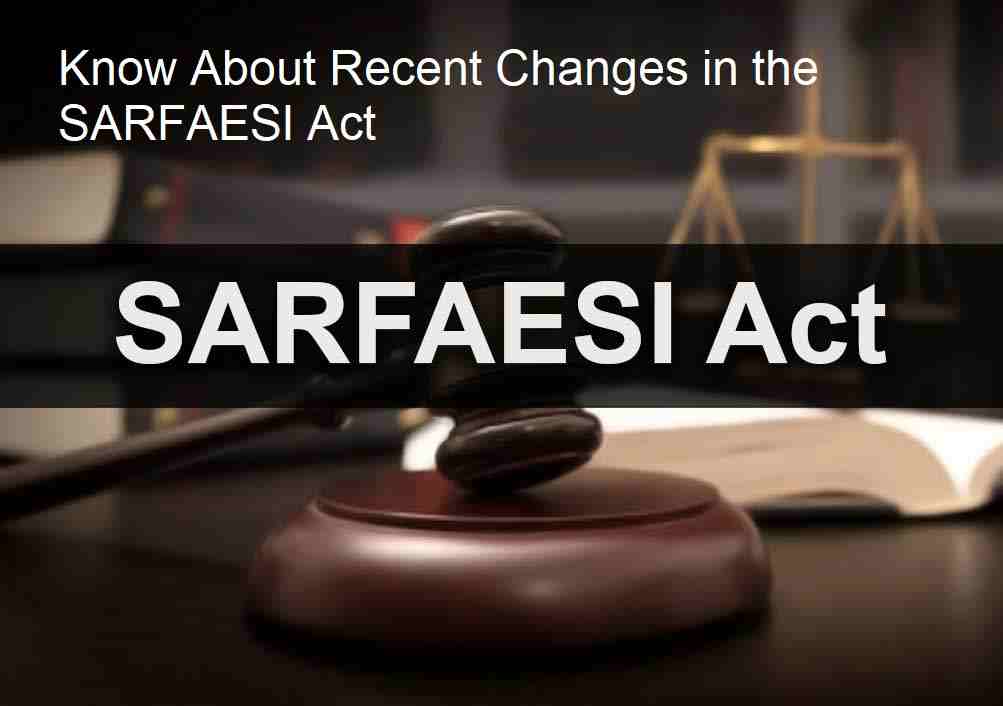Introduction of Mortgagor’s Redemption Right:
In a recent landmark choice, the best courtroom in India addressed crucial problems surrounding securitization and loan redemption, providing readability on the interplay between the Securitization and Reconstruction of financial property and the Enforcement of Securities Interest Act, 2002 (the Act) and the switch of belongings Act, 1882 (the 1882 Act). The case of Celir LLP v. Bafna Cars (Mumbai) Pvt. Ltd. serves as a pivotal moment within the felony panorama, resolving conflicts and establishing important precedents.
History:
The criminal saga spread out at the same time as the Union Financial Institution of India extended a credit rating facility of approximately Rs. one hundred Crores to Bafna Motors (Mumbai) Pvt. Ltd. (the Borrower). The collateral for this credit score rating has become an immovable belongings placed in Thane, Maharashtra. ultimately, the Borrower modified into declared a non-performing asset, with dues amounting to around Rs. 123 Crores. The bank, performing inside its rights below the Act, initiated auction lawsuits in step with the provisions of section 13.
Despite 8 unsuccessful tries to auction the belongings, the financial institution ultimately secured a successful bid from Celir LLP (the auction client). But, the Borrower, looking to quash the complaints, approached the Debt Recovery Tribunal, Mumbai (DRT). The legal conflict escalated when the Borrower, looking ahead to an unfavourable outcome, filed a writ petition underneath Article 226 of the constitution earlier than the Bombay High Court (HC) to protect its right to redemption.
High Court's Decision on Borrower's Right:
The HC, adopting a practical approach, allowed the Borrower to exercise its right to redemption, subject to payment of approximately Rs. 129 Crores—slightly exceeding the outstanding dues. This decision, rooted in equitable considerations, aimed to balance the interests of the Borrower and the Auction Purchaser.
Supreme Court's Analysis:
The ideal court, in its comprehensive evaluation, delved into four primary questions that fashioned the crux of the matter.
- Survival of property to Redemption: The court examined whether or not the right to redemption, as mentioned in section 60 of the 1882 Act, persists regardless of the present-day amendment to segment 13 (8) of the Act. The amendment, added using the Enforcement of the Protection Interest and Healing of Debt Laws and Miscellaneous Provisions (Amendment) Act, 2016, altered the dynamics by extinguishing the right to redemption as soon as a public sale is publicly noticed.
- Jurisdiction of the high court: The best court docket scrutinised whether the HC changed into justified in exercising its jurisdiction below Article 226 of the constitution whilst alternative treatments have been to be had under the Act. The principle of exhaustion of alternative remedies earlier than looking for constitutional remedies changed into a primary point of consideration.
- Equitable issues: The courtroom explored the HC's use of equitable issues to override the statutory provisions of the Act. It wondered whether or not equity could deviate from the established prison framework and if such considerations ought to override the rights of the public sale consumer.
- Extinguishment of proper Redemption: An important aspect under attention was whether or not the proper redemption of a mortgagor stood extinguished upon the e-book of an auction notice, as consistent with the provisions of phase thirteen (8) of the Act.
Supreme Court's Ruling:
- Amendment to Section 13 (8): The Court unequivocally declared that the latest amendment to Section 13 (8) of the Act altered the timing at which the right to redemption is extinguished. The moment an auction is publicly noticed, the mortgagor's right to redemption is deemed extinguished, a departure from the earlier provision that allowed redemption upon full payment of dues.
- Priority of the Act over the 1882 Act: Emphasising the Act as a special enactment, the Court affirmed its precedence over the general law prescribed under the 1882 Act. This interpretation was crucial in harmonising the conflicting provisions of the two statutes.
- Intent of the Act: The Court delved into the legislative intent behind the Act, highlighting its primary objective as the protection of the security interests of creditors. The emphasis was on safeguarding the auction process and ensuring its smooth functioning, with auction purchasers occupying a pivotal role.
- Regulations on excessive court's Jurisdiction: The Supreme Court ruled that the HC's exercising of jurisdiction under Article 226 was now not justified while alternative treatments were to be had and had already been pursued by way of the Borrower. This underscored the significance of adhering to set up legal strategies.
- Fairness and the rule of law: Rejecting the HC's reliance on equitable issues, the splendid court docket reaffirmed that fairness ought to constantly observe the law. In this case, the law favoured the Auction Purchaser, and any deviation from the statutory provisions would be inconsistent with established legal principles.
Conclusion and Implications:
In concluding its judgement, the preferred court declared that the public sale fee needs to be accepted as final and binding on all events concerned It ordered the issuance of a sale certificate in favour of the Auction Purchaser, subject to the deposit of the remaining sums. The Borrower's deposit, as allowed by the HC, was to be refunded promptly.
This ruling carries significant implications for the field of securitization law. It upholds the interests of genuine auction purchasers under the Act, preventing banks from allowing borrowers to exercise their right to redemption merely because they offer a higher price than legitimate auction purchasers. Moreover, it provides a definitive stance on the extinguishment of a borrower's right to redemption upon the publication of an auction notice, bringing clarity to a previously ambiguous legal landscape.
In essence, the Supreme Court's decision in the Celir LLP v. Bafna Motors case serves as a cornerstone in the evolving jurisprudence surrounding securitization and mortgage redemption. By striking a balance between the rights of mortgagors and the interests of creditors, the Court has contributed to developing a more robust and coherent legal framework in this complex area of law.


